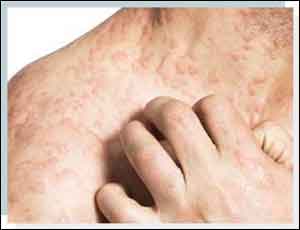- Home
- Editorial
- News
- Practice Guidelines
- Anesthesiology Guidelines
- Cancer Guidelines
- Cardiac Sciences Guidelines
- Critical Care Guidelines
- Dentistry Guidelines
- Dermatology Guidelines
- Diabetes and Endo Guidelines
- Diagnostics Guidelines
- ENT Guidelines
- Featured Practice Guidelines
- Gastroenterology Guidelines
- Geriatrics Guidelines
- Medicine Guidelines
- Nephrology Guidelines
- Neurosciences Guidelines
- Obs and Gynae Guidelines
- Ophthalmology Guidelines
- Orthopaedics Guidelines
- Paediatrics Guidelines
- Psychiatry Guidelines
- Pulmonology Guidelines
- Radiology Guidelines
- Surgery Guidelines
- Urology Guidelines
Systemic corticosteroids have limited role in Severe Atopic dermatitis: IEC

Systemic corticosteroid has a limited role in the treatment of severe atopic dermatitis (AD) in children and adults, recommends the expert panel from the International Eczema Council (IEC). Systemic corticosteroid should be used under the specific circumstance in patients with the severe AD and prescribed for short-term treatment and should not be used for long-term treatment. Guidelines discourage the use of systemic corticosteroids for atopic dermatitis (AD), but their use remains widespread.
A.M. Drucker and his associates conducted a survey to reach consensus among an international group of AD experts on the use of systemic corticosteroids for the AD. The survey consisted of statements accompanied by visual analog scales ranging from ‘strongly disagree’ to ‘neutral’ to ‘strongly agree’ and was distributed to the International Eczema Council (IEC). The consensus was reached in agreement on a statement if < 30% of respondents marked to the left of ‘neutral’ towards ‘strongly disagree.’
Most respondents agreed that systemic corticosteroids should not be used in children, but the consensus was not reached on that statement.
Key recommendations:
- Based on criteria of 70% of respondents marking from neutral to strongly agree, panel consensus reached on 12 statements on the use of systemic corticosteroids for treatment of severe AD
- Given the concern of side effects and rebound flares on discontinuation systemic corticosteroid should be avoided or may be used rarely in children aged <12 years (86%/71%), 12-17 years (84%/71%) and adults aged ≥18 years (78%/80%).
- May be used when no other viable treatment option is available (81%).
- May be used as a bridge to other systemic agents or phototherapy (72%).
- May be used for immediate relief from acute flares during severe AD (78%).
- May be used in anticipation of an important life event (e.g., wedding) (75%).
- May be used during most severe cases (e.g., erythrodermic) (72%).
- Should be limited to short-term treatment (94%).
Based on the expert opinion from the IEC, routine use of systemic corticosteroids for the AD is generally discouraged and should be reserved for special circumstances.
The recommendations were published in the British Journal of Dermatology.
For more reference log on to https://doi.org/10.1111/bjd.15928

Disclaimer: This site is primarily intended for healthcare professionals. Any content/information on this website does not replace the advice of medical and/or health professionals and should not be construed as medical/diagnostic advice/endorsement or prescription. Use of this site is subject to our terms of use, privacy policy, advertisement policy. © 2020 Minerva Medical Treatment Pvt Ltd